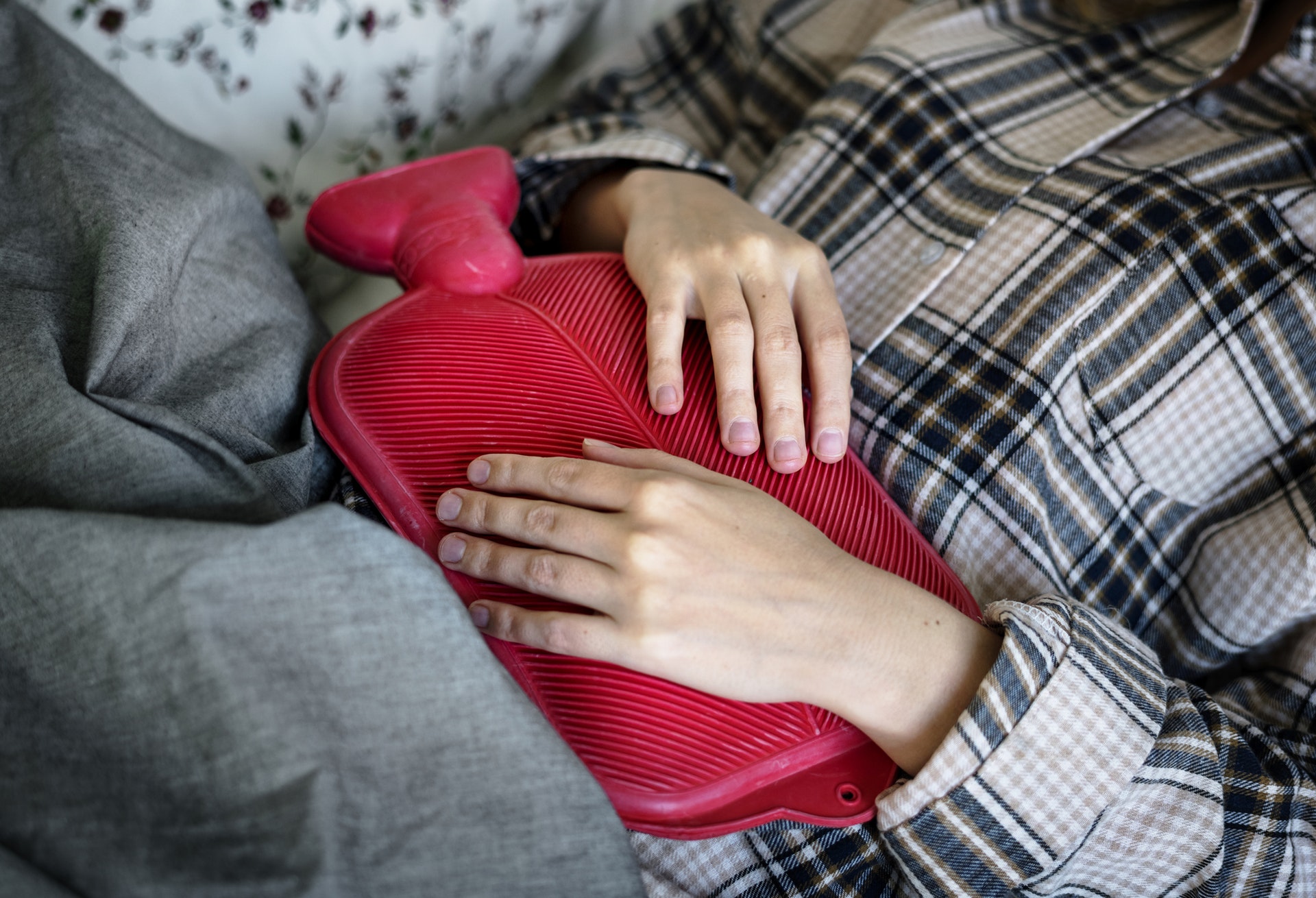This post was originally published in October 2018. Updated in November 2022.
PMS symptoms affect over 48% of women of reproductive age. It starts about 1-2 weeks before your period. Once the menstruation begins PMS symptoms often disappear or may last another 2-5 days.
PMS or Premenstrual Syndrome refers to a combination of physical, behavioral, and emotional changes. It occurs after ovulation due to the
Not all women experience PMS symptoms as some women get their period without having any signs of PMS or maybe having
The symptoms can be really severe for some women and keep them from doing their regular activities.
In this article, I will include the causes of PMS symptoms, physical and emotional symptoms, how to ease the symptoms, when to consult a doctor, and more FAQs.
Let’s get started…
Table of Contents
What Are The Causes Of PMS Symptoms?

What causes PMS Symptoms is still unknown but researchers believe that some factors could contribute to this condition:
Hormonal Changes:
Changes in hormone levels during the menstrual cycle could be responsible for causing PMS.
Progesterone and estrogen levels during the second half of the menstrual cycle rise and then drop rapidly. And this could lead to anxiety and mood swings.
Chemical Changes:
Fluctuations of serotonin and norepinephrine levels in the body could lead to PMS.
Serotonin and norepinephrine are the hormones that help regulate mood and keep you feeling better.
A drop in estrogen levels could cause fluctuation in those hormones which may make you
Other Problems:
If you have depression, anxiety, or bipolar disorder or have experienced postpartum depression, this could increase the risk of PMS.
Chemical changes in the brain are usually responsible for raising the chance of experiencing PMS.
Also, PMS Symptoms Can Get Worse When You:
- Smoke.
- Eat too much salt or sugar.
- Consume unhealthy fatty food.
- Have trouble sleeping.
- Drink too much alcohol.
- You’re not active enough.
What Are The Most Common PMS Symptoms?
If you are one of the women who experience PMS monthly, the symptoms can be mild, moderate, or severe, which might have a negative impact on your daily routine.
You may experience some of the following symptoms or all of them:

Physical Symptoms:
- Fatigue and Headache.
- Nausea.
- Breast tenderness.
- Abdominal bloating.
- Diarrhea or Constipation.
- Acne.
- Light or sound sensitivity.
- Back pain.
- Muscle pain.
- Cramps.
- Weight gain or swelling due to fluid retention.
Related: How To Get Rid Of Belly Bloating: 10 Super Easy Tips
Emotional & Behavioral Symptoms:

- Mood swings.
- Feeling on edge.
- Irritability.
- Anxiety.
- Difficulty concentrating.
- Emotional outbursts.
- Depression.
- Crying.
- Sadness.
- Food Cravings, especially for sweets.
- Tension.
- Trouble sleeping.
- Low sex drive.
How To Deal With PMS Symptoms?
Fortunately, you can follow some steps that will help you relieve and manage the symptoms:

- Sleep 7-9 hours each night as lack of sleep can make the symptoms worse.
- Consume more balanced meals that include vegetables, protein, fiber, healthy fats, whole grains, and fruits.
- Avoid consuming too much caffeine, salt, and sugar, especially in the ten days before your period.
- Stay hydrated by drinking enough water and herbal teas to reduce bloating. Try chamomile tea or ginger tea.
- Exercise to improve your mental health and ease depression and anxiety symptoms.
- Don’t smoke.
- Don’t drink too much alcohol before your period because alcohol can make you feel depressed.
- Practice daily self-care activities including reading books, going out or talking with friends, and working out to help reduce stress.
- Take over-the-counter pain relievers to reduce muscle pain, headaches, and cramps.
- Take Calcium supplements to help reduce mood swings and sadness.
- Studies showed that vitamin B6 can reduce depression and irritability while vitamin D relieves back pain.
- Magnesium supplements can improve the symptoms (breast tenderness, fatigue, fluid retention, and bloating). And Vitamin E can reduce breast tenderness and cramps.
It’s recommended to consult with a doctor before taking any supplements.
When To See A Doctor?

If your PMS symptoms become severe enough to prevent you from doing your daily activities each month, you should consult a healthcare provider.
Your doctor is going to examine you and ask the right questions so he/she can tell you what to do. The doctor may prescribe supplements, certain over-the-counter pain relievers, or mefenamic acid oral capsules to ease the pain.
FAQs:
Is Nausea A Symptom Of PMS?
Yes. nausea and fatigue are common physical symptoms of PMS that could last a few days. Drinking herbal teas like ginger tea or chamomile tea can ease nausea and help you feel better.
How Many Days Before Period Do You Get PMS Symptoms?
About 1-2 weeks before your period. You may experience PMS symptoms including cramps, mood swings, cravings, bloating, headaches, and breast tenderness.
How Long Does PMS Last?
PMS starts 1-2 weeks before your period and last 2-5 days after your period begins.
What Is The Best Natural Remedy For PMS?
– Eating healthy meals rich in protein, vitamins, minerals, and healthy fats.
– Drink herbal teas like chamomile tea or ginger tea to relieve bloating and anxiety.
– Stay hydrated.
– Don’t smoke or drink too much alcohol.
– Take supplements.
– Avoid salty and sugary foods.
– Sleep enough each night.
– Exercise and meditate regularly.
The Bottom Line
PMS symptoms affect many women each month, and the symptoms could be mild or severe. Some over-the-counter medications and home remedies can ease the symptoms and help you feel better.
Keep in mind to consult a doctor if the symptoms become super severe and start to affect your lifestyle activity every month.
